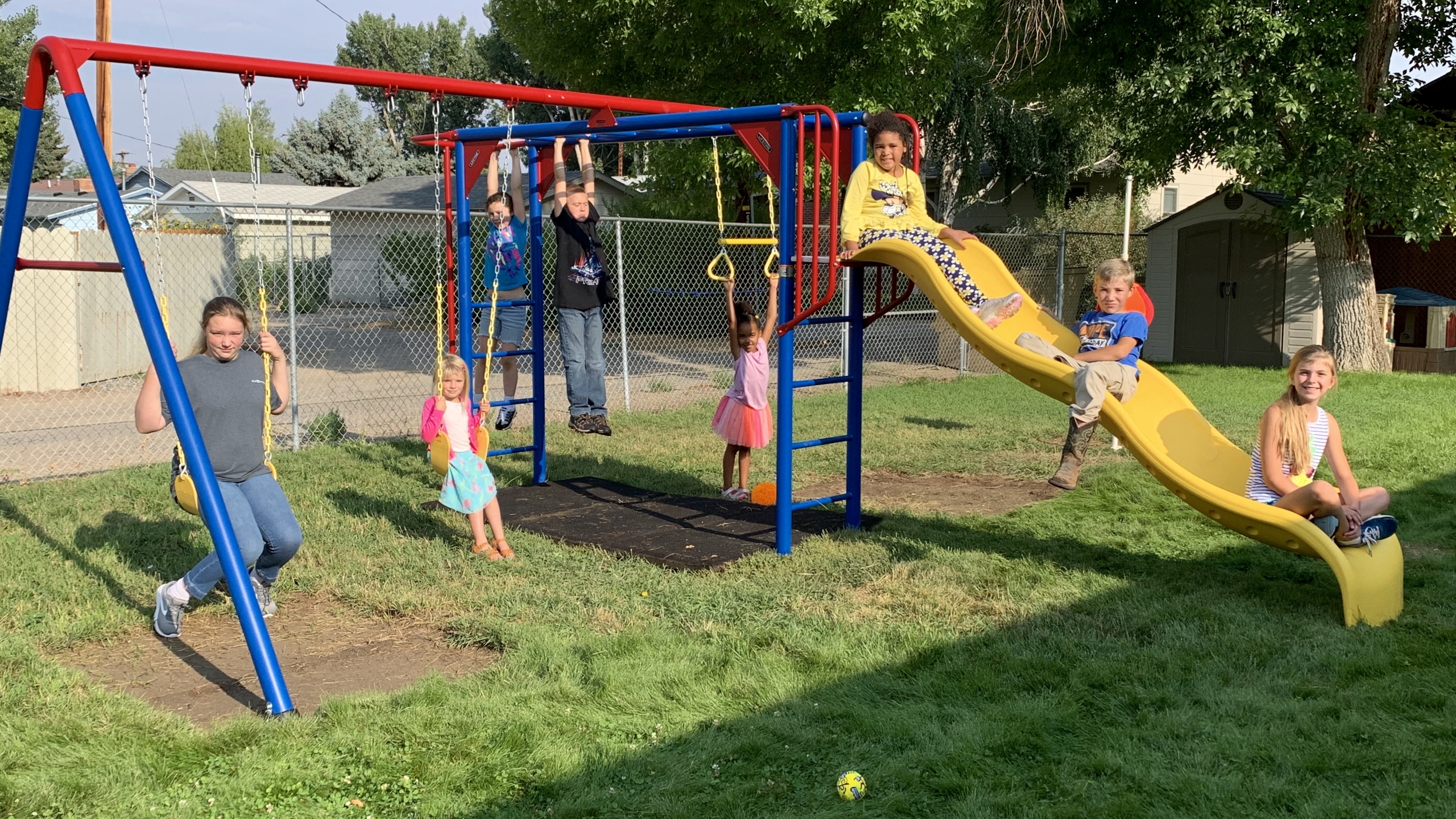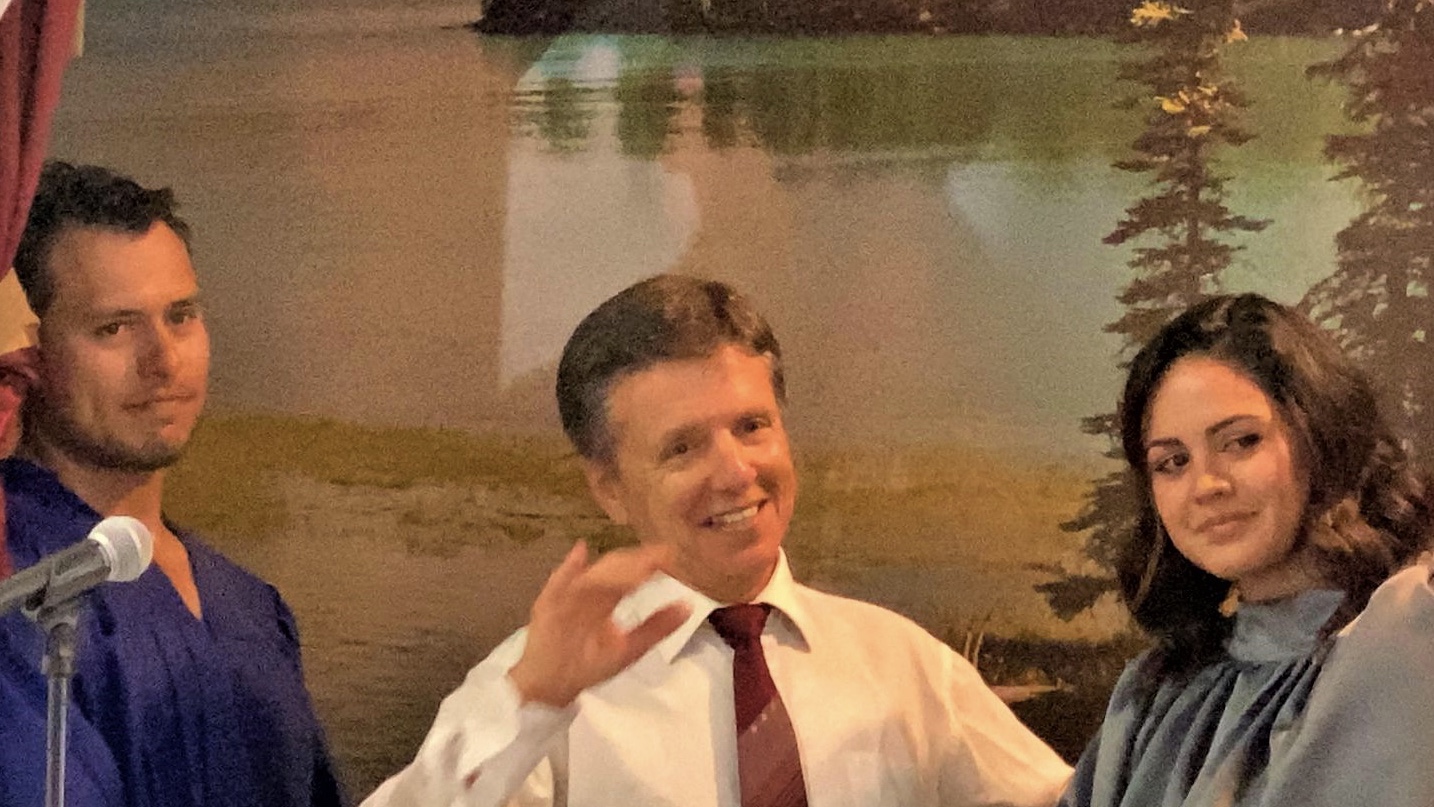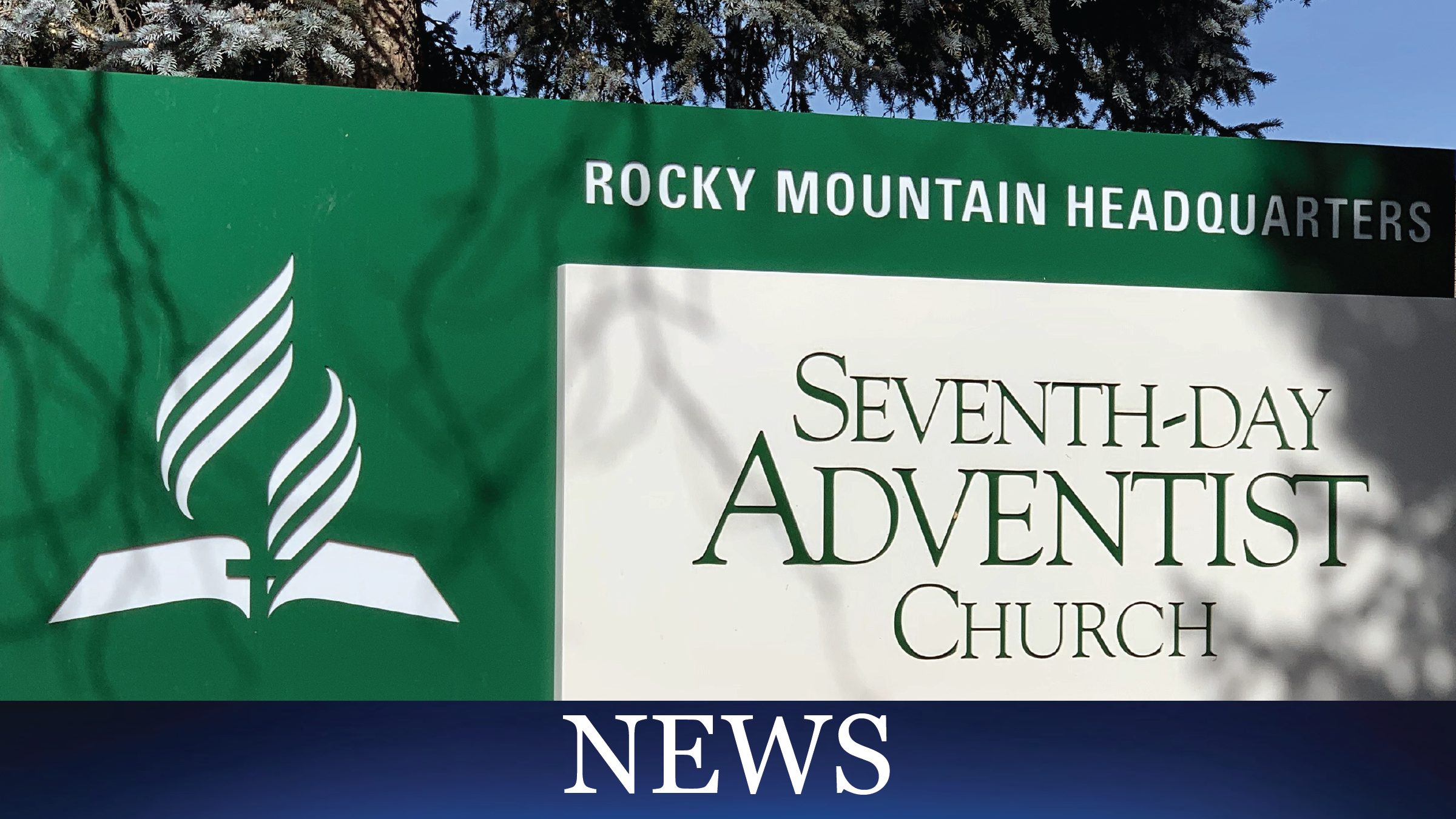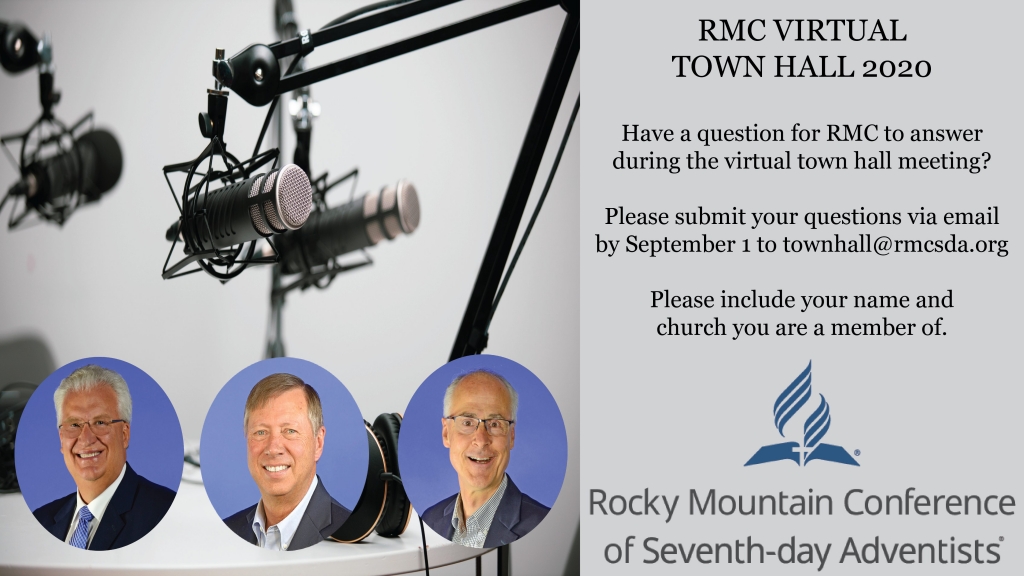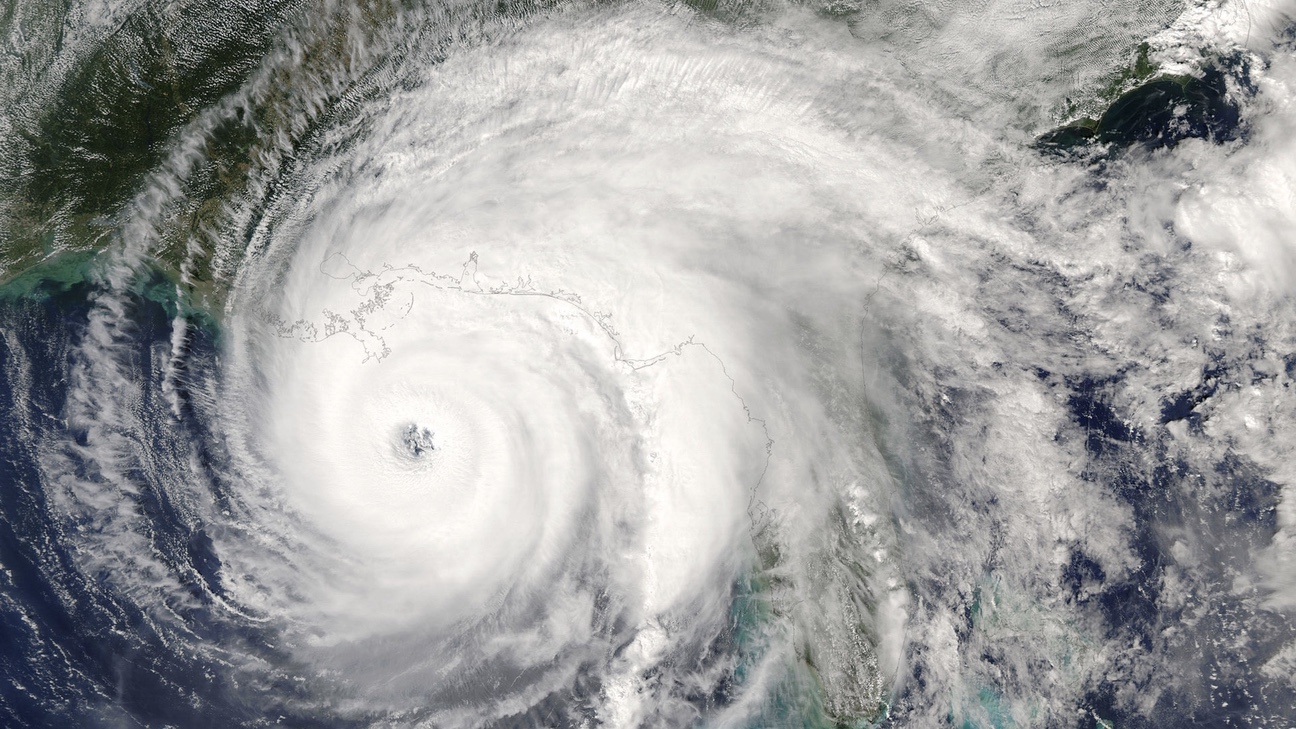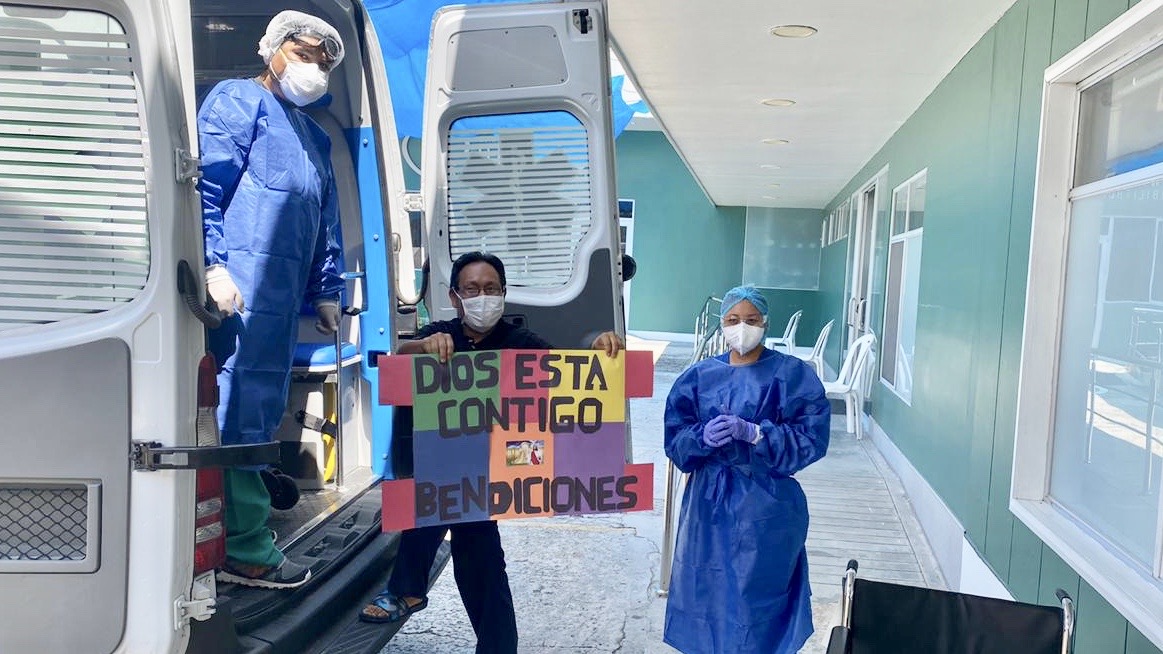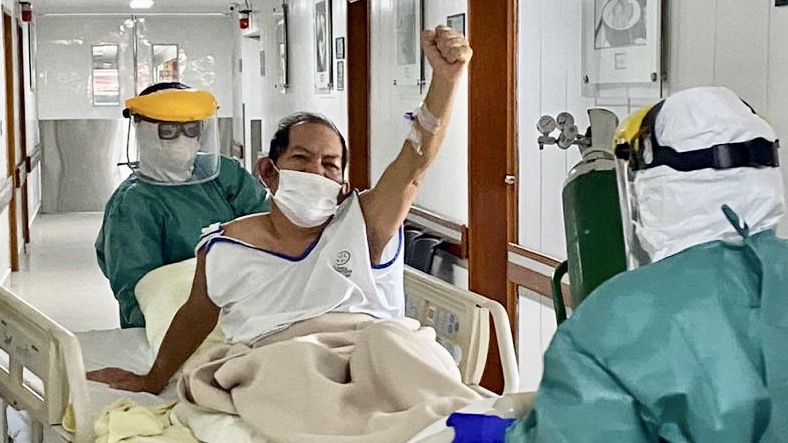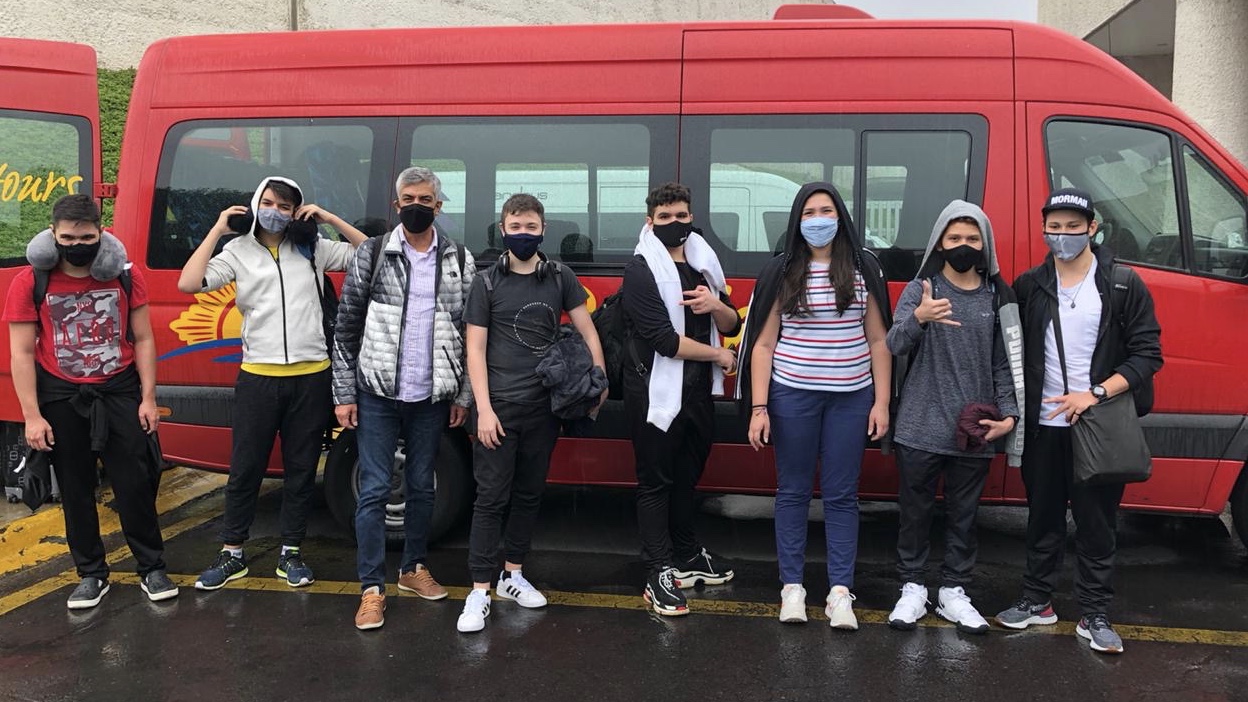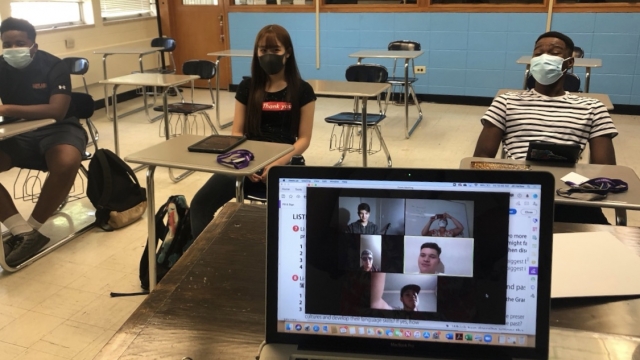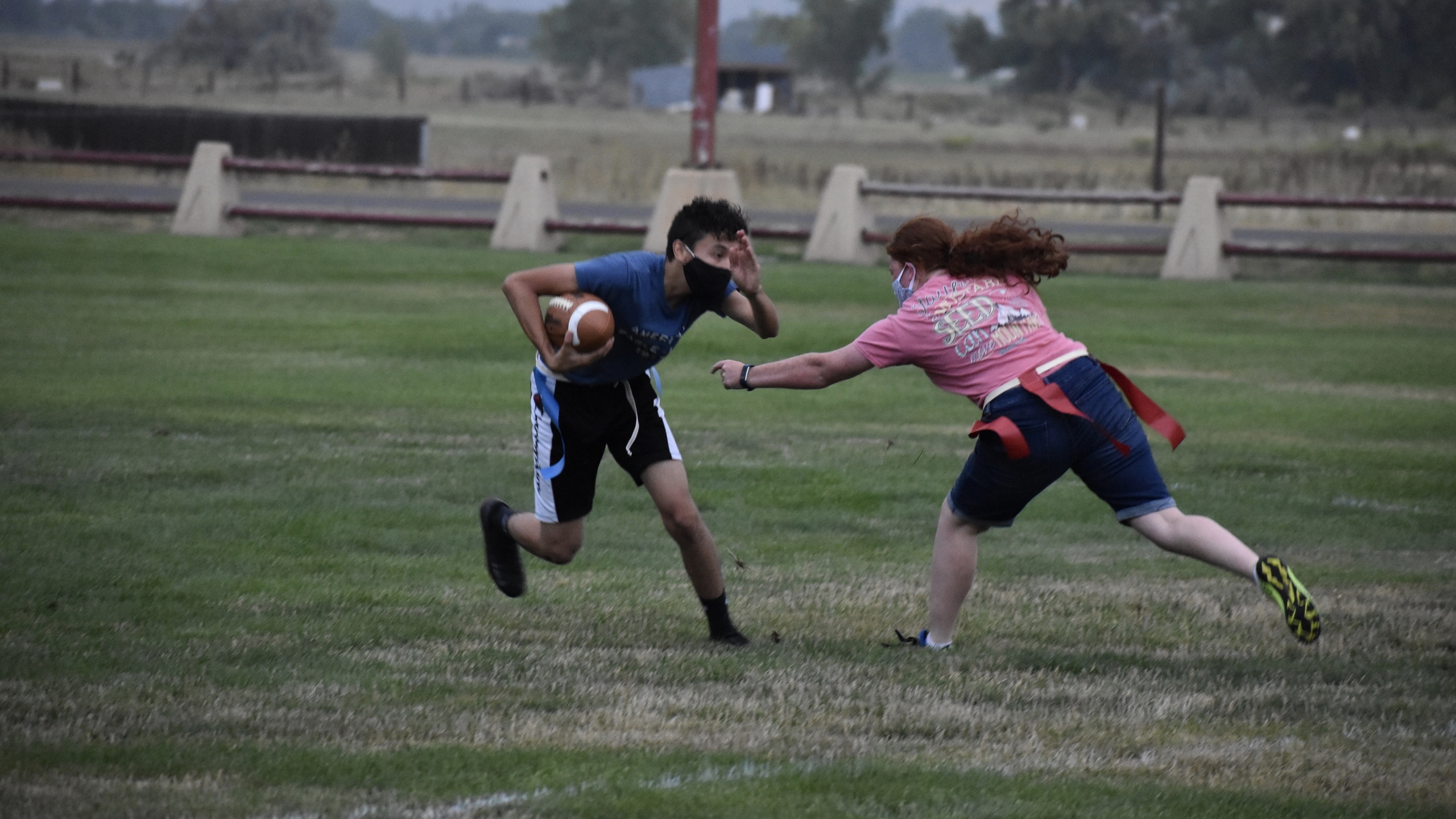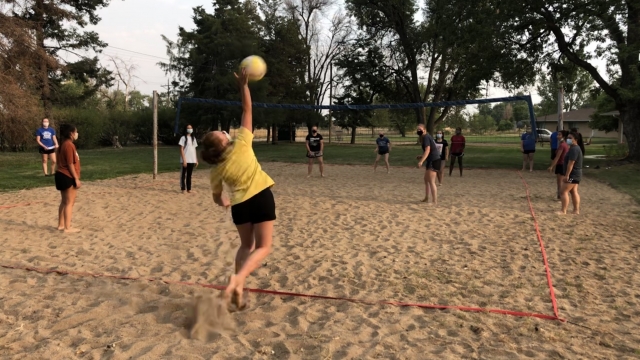By Adam Fenner — Berrien Springs, Michigan …If you grew up Adventist, you may have been a victim of “Time of Trouble” warnings. If you were like me, you had nightmares as a 10-year-old of fleeing into the wilderness with a backpack filled with a Bible, The Great Controversy, and maybe a can of Fri-Chik to sustain you and your surviving family for the next two months, or until Jesus returned.
If you can even mildly relate to this, you may have been told Jesus would return “in your lifetime,” or “within a year.” Or maybe you sat in church and were told, like I was, that “Jesus might return right after church is over.”
In the past 10 years, however, I’ve noticed a decrease in Adventists discussing end time events. Throughout my upbringing in the 1980s and 90s, the “Time of Trouble” was a fairly mainstream Adventist idea in North America. It was not uncommon to discuss where people in my community might flee to during persecution, or for acquaintances to move to remote areas and live off the grid to escape impending government intrusion in their lives.
Perhaps my experience is different than yours, but these topics seem less and less in vogue within mainstream Adventism in our territory. Why might this be the case?
I think there’s a good chance we’re mildly embarrassed, and maybe even traumatized by some of our fellow church members’ failed premonitions and informal predictions about the Second Coming. Or maybe, we’re just tired of being wrong about the “End of the World.”
Reversing Discourse
I’d like to put forth the idea that Adventism needs to revise its discourse surrounding end time theology. I’m not arguing our theology about the Apocalypse is wrong, or that it needs revising, but rather that we need to think and talk about the end times differently. I believe the Adventist interpretation of Scripture, and therefore end time prophecy, is remarkably pertinent to the twenty-first century. If we learn to contemplate the Apocalypse in more objective modern terms, we can offer the world the invaluable biblical explanation for why the world is unraveling, and why our faith in Jesus is so well-placed. In other words, we need to stop saying Jesus will come in the next two years based on some dubious math and who might be president, and instead start talking about how Jesus will save the world, and why current environmental realities are actually corroborating biblical prophecies.
Mainstream North American society is saturated with imagery and discourse regarding the “End of the World.” There’s a host of different films, television shows, books, articles, and news stories dealing with the end of civilization as we know it. Whether zombies, disease/plague, a meteor, alien invasion, climate change, Mayan prophecies, overpopulation, or nuclear war, we’re obsessed with the Apocalypse. There’s a palpable sense in our culture the end is of the world is just around the corner, and that we as individuals — and as a society — are fragile, at the mercy of forces outside of our control, and that we are in real need of saving. The idea of being saved from the world’s destruction is what drives Hollywood blockbuster franchises like Superman and the Avengers, leads us to idolize inventors and would-be redeemers like Elon Musk and Jeff Bezos, and place an illogical amount of faith in the aptitude of political leaders. Saving humanity almost always comes in the form a hero, a savior.
I believe the underlying forebodings present in our culture — signaling that our planet is doomed — and a general knowledge that we desperately need a savior point towards evidence that the world is hungry for hope in a Heavenly Savior. The time is right for Adventists to take courage in sharing Jesus as the hope for humanity and to place emphasis on end times prophecy, but we need to do so in a new, more relevant way.
Inserting the Good News
We Adventists tend to obsess over political events and concoct elaborate conspiracy theories, but this does us few favors in a contemporary, educated society. You’ve seen the posters, pamphlets, DVD cases, book covers, and church bulletins with a handful of political leaders, a nuclear explosion, the Bible, maybe a Quran, and a few scary beasts from Daniel 7-9. I firmly believe political events will be a major feature of the end times, but they are so subjective and unpredictable that investing too much time in trying to understand how they fit into prophecy offers little return on investment. We might be scaring more people away from our denomination with prophetic political fixations than attracting them.
In the place of conspiracy theories and fearmongering about the “End of the World,” I suggest we insert the good news of Jesus Christ in the context of objective facts about what’s happening to our planet. This will be more palatable to an informed and hyper-critical society as we have in North America and, in general, more appealing to people who consider scientific inquiry as a trustworthy measure of reality.
For example, Revelation 8 has some powerful imagery for what has already happened to the Earth and will continue to transpire and worsen in the last days. The trumpets mentioned there provide Adventists a powerful opportunity for talking about our end time theology. We’re told “A third of the earth” will be “burned up” including a “third of the trees…and all the green grass.” “A third of the living creatures in the sea” die. “A third of the waters” become “bitter” and many people die because of it. “A third” of the “sun,” “moon,” and “stars” “turn dark” (Rev. 8:7-12).
These same symbols of judgment return again with greater fury in Revelation 16. In popular media we can find evidence for the actual manifestation of these symbolic events starting to take place, and science is leading the charge in corroborating the Bible and what has and is projected to happen to our planet. We can explore these prophecies using science, which is a much more effective way of framing the biblical account of the end times than saying on a hunch, “Jesus will be here within five years.”
In the Natural World
Let’s frame this conversation in the current context, bearing in mind Jesus’ words in Matthew 24 about an increasingly deteriorating planet full of catastrophic events.
“A third of the earth will be burned up”— our planet’s plant and animal species are becoming extinct at an incredible rate. So many insects are dying that some commentators are worried about the “collapse of nature.” Although we don’t often have a tremendous appreciation for insects, “40 percent of insect species are declining and a third are endangered.” This is a real problem when you consider their importance for plant pollination and how entire ecosystems depend on them for food.[1] In a recent study, it was found that 2.9 billion birds have disappeared from North American skies since 1970. If the proverbial “canary in the coal mine” metaphor has any wisdom in it, humanity is headed for disaster. The biodiversity of our planet is experiencing a holocaust, and currently, an estimated one million species “are at risk of extinction.”[2]
It is clear that “one-third of the earth” is dying. Desertification, the process by which agricultural land is degraded to infertility, is taking place at “30 to 35 times the historical rate.” Two billion people “depend on ecosystems in dry land areas,” and the United Nations estimates roughly 50 million people might be “displaced” within 10-years because of desertification.[3] If this isn’t scary enough, 18.7 million acres of forest are destroyed each year. This is the equivalent to losing “27 soccer fields of forest every minute.” This is comparable to losing a forest the size of Panama every year.[4]
“A third of the oceans will die”— the World Wildlife Fund released a report stating almost half of marine life found in the oceans in 1970 no longer existed in 2012.[5] Simply put, the oceans are dying. Studies from Australia indicate so many marine species are either declining or absent from their natural habit that the oceans “are on the brink of total collapse.”[6] Our world’s water systems are in such disarray the United Nations estimates that “by 2025, 1.8 billion people will experience absolute water scarcity, and 2/3 of the world will be living under water-stressed conditions.”[7]
The prophecy about “a third” of the sun, moon, and stars going dark could be interpreted in number of different ways, but it could easily point toward ecological problems with our planet.[8] This could be a prophecy about air pollution since light and air pollution prevent billions of people from seeing the night sky in a fashion our ancestors would recognize. Our air is so bad that worldwide 4.2 million people die each year from being exposed to outside air. Some 91 percent of the world’s population live where the air quality doesn’t meet World Health Organization standards.[9] When we look up, we no longer see the heavens in the way God intended, and many of us on this planet are harmed by the air we breathe.
North America is home to a fairly wealthy, educated, and increasingly secular society. Our minds are bombarded by 34 terabytes of data each day.[10] We simply don’t have the time or energy to entertain information that isn’t immediately relevant to our changing needs and whims of the moment. With so much data available, we are forced to make snap judgments, cull irrelevant ideas, concepts, and narratives that seem implausible or unsupported by logic or scientific evidence. Our society simply doesn’t have much patience or need for conspiracy theories and fearmongering. What does make sense to Westerners is that the world is dying, and we need a savior, a hero.
As Adventists, we have the luxury of having science actually support our “End Times” theology, and we can offer a perspective of Jesus that points to Him as the Savior the world needs. Let’s start talking about the “End of the World” again, but in such a way that is Christ-centered, and data driven.
—Adam Fenner is director of Adventist Learning Community, North American Division; photo by iStock.
Posted courtesy of North American Division of of the Seventh-day Adventist website.
[1] https://www.theguardian.com/environment/2019/feb/10/plummeting-insect-numbers-threaten-collapse-of-nature
[2] https://www.vox.com/science-and-health/2019/5/7/18531171/1-million-species-extinction-ipbes-un-biodiversity-crisis
[3] https://www.un.org/en/events/desertificationday/desertification.shtml
[4] https://www.livescience.com/27692-deforestation.html; and https://www.globalcitizen.org/en/content/queen-elizabeth-ii-forests-planet-earth/
[5] https://www.cnn.com/2015/09/17/world/oceans-report/index.html
[6] https://www.themonthly.com.au/issue/2018/august/1533045600/james-bradley/end-oceans
[7] https://www.unccd.int/issues/land-and-drought
[8] Some Adventists have interpreted the darkening of the sun, moon, and stars to specific astronomical events in the 19th century. My purpose is not to discount these interpretations, but rather offer the idea these prophecies may have double applications or interpretations.
[9] https://www.who.int/airpollution/en/
[10] https://bits.blogs.nytimes.com/2009/12/09/the-american-diet-34-gigabytes-a-day/

